News
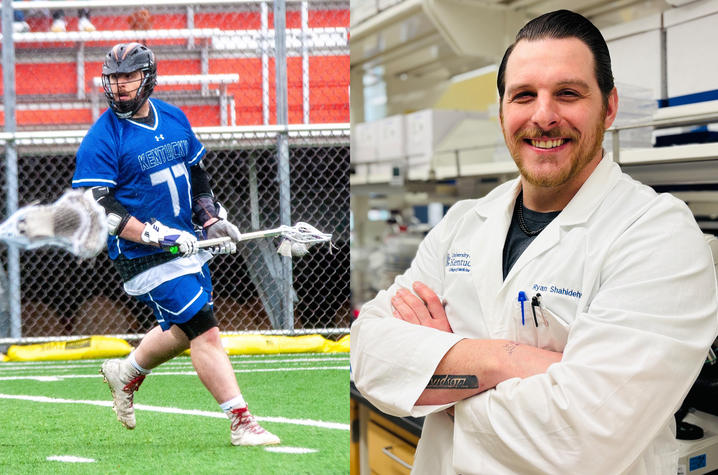
Before donning a lab coat at the University of Kentucky’s Sanders-Brown Center on Aging, Ryan Shahidehpour, PhD, was lacing up boxing gloves and facing off in competitive lacrosse matches. With more than 250 fights under his belt, Shahidehpour built a reputation for discipline, focus and resilience—qualities that now serve him just as well at the lab bench as they once did in the ring.
Three University of Kentucky College of Medicine students recently took their passion for Alzheimer’s advocacy to the nation’s capital, meeting with lawmakers to champion research, education, and access to care for those impacted by dementia. The trio traveled to Washington, D.C., as volunteer advocates with the Alzheimer’s Impact Movement (AIM) Advocacy Forum.

The University of Kentucky is well-represented on a list of the most-cited researchers in the world. In a database compiled by Stanford University in a partnership with Elsevier, 136 current UK scientists and scholars appear among the top 2% of the most-cited researchers across 22 disciplines.

Read the Magazine
Participating in brain-stimulating activities is essential to those dealing with Alzheimer's disease, but due to a lack of nearby resources and potential ambulatory issues, many Kentuckians in need of memory care do not have access to the help they need.
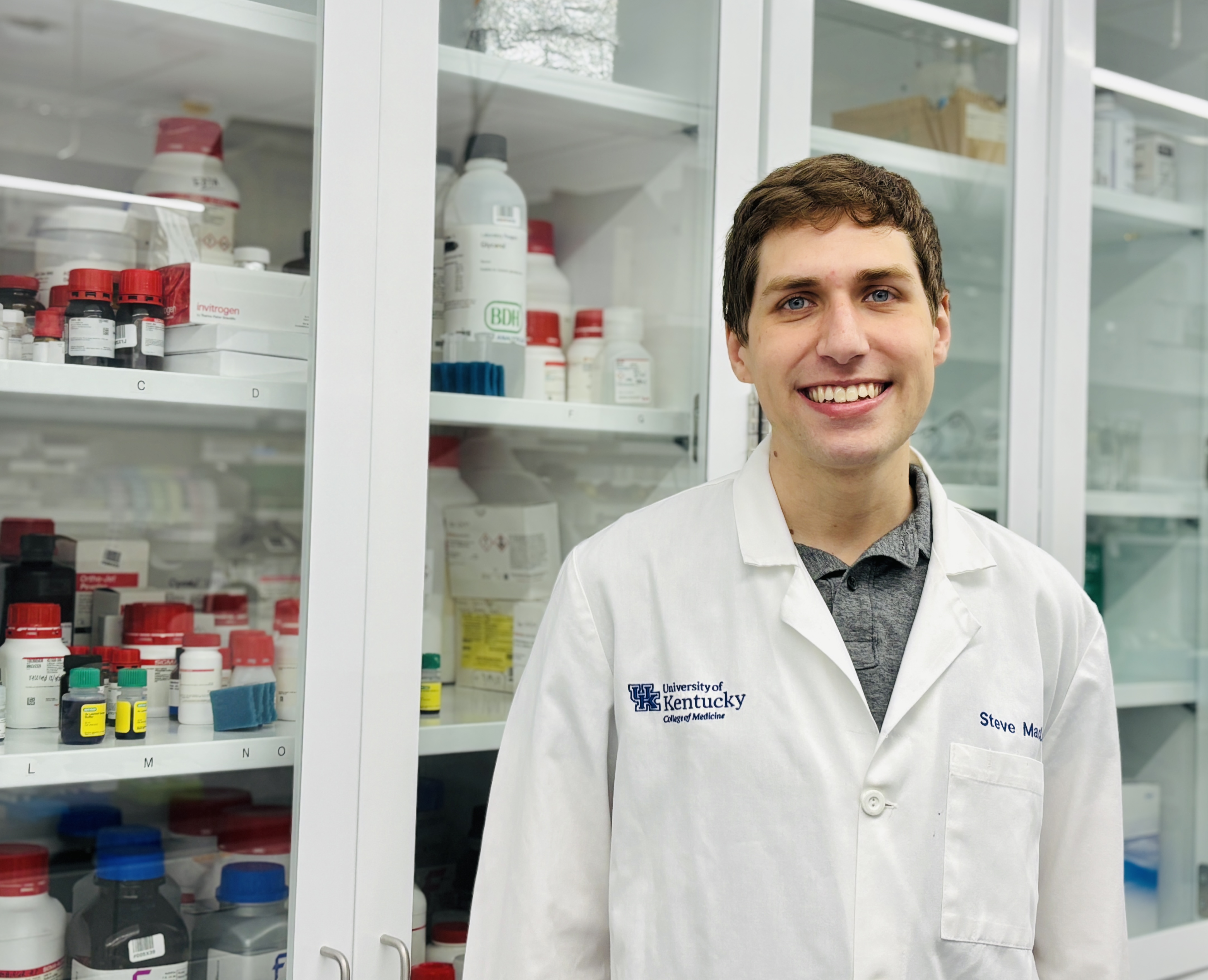
My name is Steve MacLean, and I am a fourth-year graduate student in the department of physiology. I am originally from Beverly Hills, Michigan, and pursued my bachelor’s degree at Central Michigan University. I first came to the University of Kentucky in 2019 as a lab technician under John Gensel, PhD, where I worked for two years studying spinal cord injury.
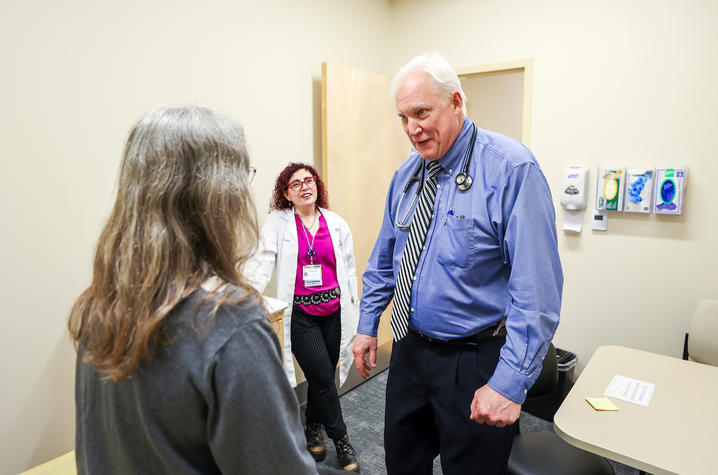
Today is International Clinical Trials Day, which “recognizes the invaluable contributions of clinical research professionals who drive innovation, uphold patient safety and push the boundaries of discovery,” according to the Society of Clinical Research Associates. The date, May 20, commemorates the day that James Lind began the first randomized clinical trial in 1747.
Researchers at the University of Kentucky play an important role in advancing the health, well-being and future of our Commonwealth.
Much of that work is done with support from the National Institutes of Health (NIH). That support allows our researchers to find answers to many of the critical health issues facing Kentuckians.

Tuesday, May 20, is Clinical Trials Day, a global day of recognition for the researchers, clinicians, staff, learners, and community members who make groundbreaking discoveries a reality through clinical trials.

For the past four decades, the University of Kentucky’s Sanders-Brown Center on Aging (SBCoA) has been at the forefront of Alzheimer’s disease research, making groundbreaking discoveries that have shaped our understanding of this complex condition.

Researchers at the University of Kentucky play an important role in advancing the health, well-being and future of our Commonwealth.
Much of that work is done with support from the National Institutes of Health (NIH). That support allows our researchers to find answers to many of the critical health issues facing Kentuckians.

Researchers at the University of Kentucky play an important role in advancing the health, well-being, and future of our Commonwealth.
Much of that work is done with support from the National Institute of Health (NIH), which allows our researchers to find answers to many of the critical health issues facing Kentuckians.
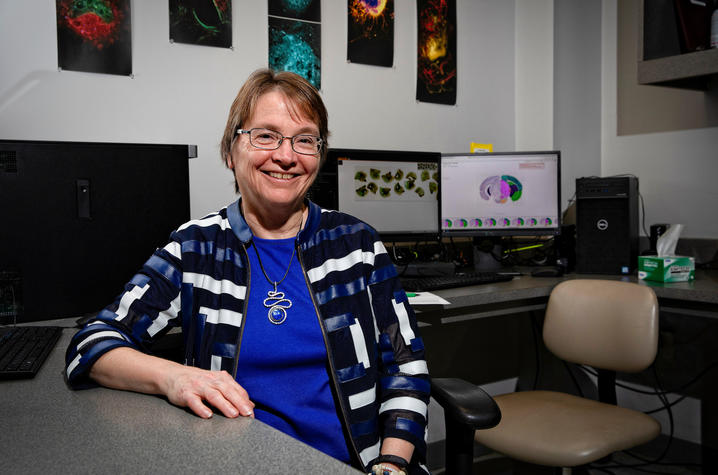
Researchers at the University of Kentucky play an important role in advancing the health, well-being and future of our Commonwealth.
Much of that work is done with support from the National Institutes of Health (NIH). That support allows our researchers to find answers to many of the critical health issues facing Kentuckians.

The National Alzheimer’s Coordinating Center (NACC) and the Alzheimer’s Association are pleased to announce the 2025 New Investigator Award winners.

The University of Kentucky plays a critical role in advancing the health, well-being and future of the Commonwealth through impactful research.
As Kentucky’s flagship, land-grant institution, UK focuses its resources, expertise and key partnerships to address the challenges facing our state to improve the quality of life for Kentuckians.
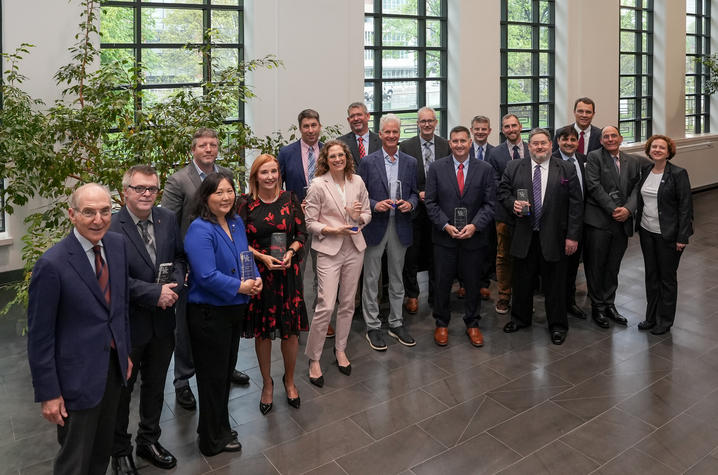
On Friday, the University of Kentucky Board of Trustees approved 18 University Research Professors for the 2025-26 academic year. Established by the Board of Trustees in 1976, the professorships program recognizes excellence across the full spectrum of research at UK.

The University of Kentucky Public Relations and Strategic Communications Office provides a weekly health column available for use and reprint by news media.
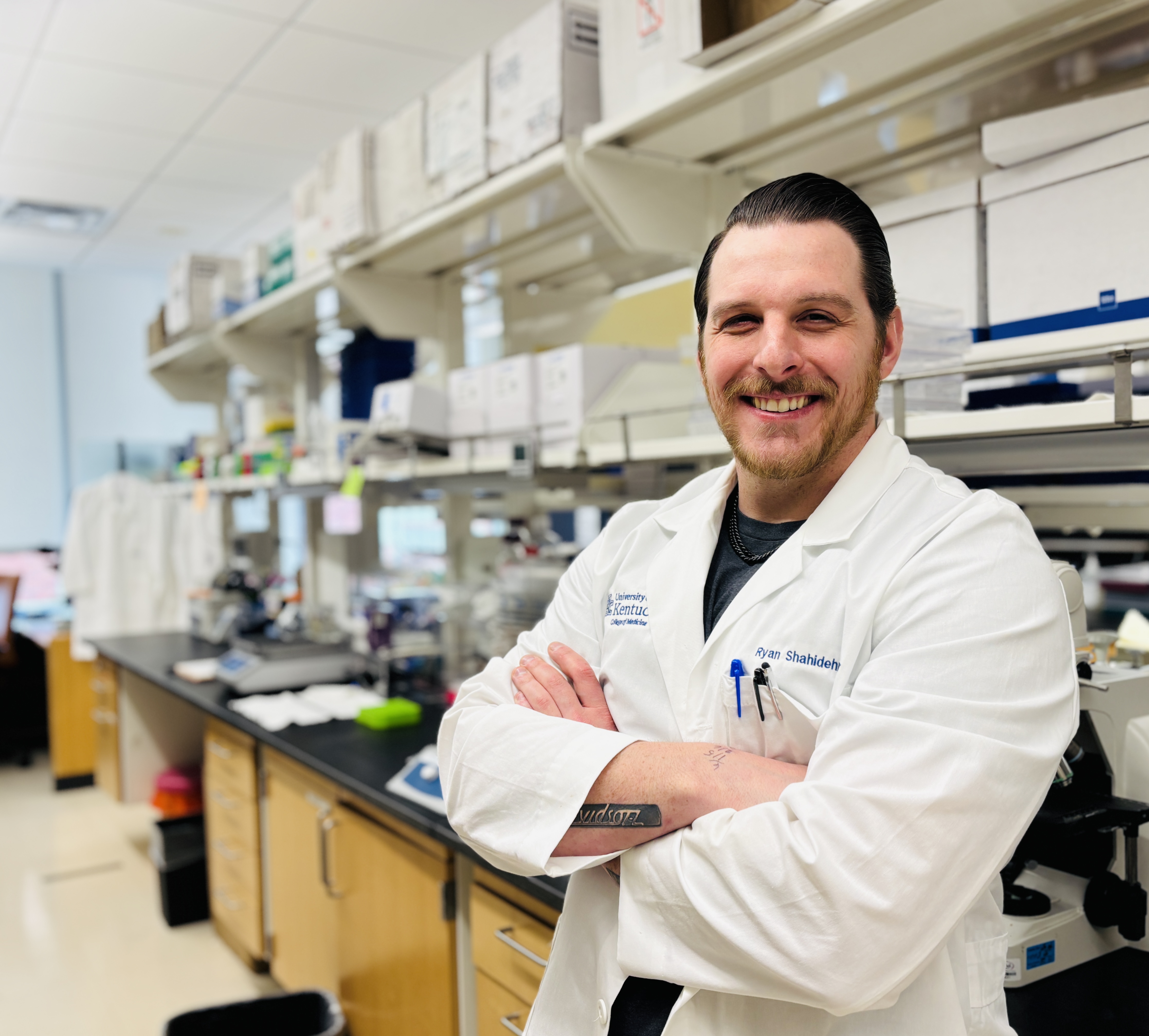
For many scientists, the research journey begins in a classroom or behind a microscope. For Ryan Shahidehpour, PhD, it began in a boxing ring.

Darlingtina K. Esiaka, PhD, an assistant professor in the Department of Behavioral Science in the University of Kentucky College of Medicine, has been awarded a fellowship by the Carnegie African Diaspora Fellowship Program (CADFP) to travel to Nigeria to work with the Research Center for Ageing Cognition and Psychological Health at Nnamdi Azikiwe University.

Scientists have long recognized the brain’s need for energy, but groundbreaking research from the University of Kentucky’s Sanders-Brown Center on Aging has now illuminated how the brain’s energy utilization significantly influences our sleep patterns.

My name is Ryan Shahidehpour, and as a postdoctoral researcher in the lab of Pete Nelson, MD, PhD, in the Sanders-Brown Center on Aging, I investigate pathological changes that drive neurodegenerative diseases associated with aging in the human brain.